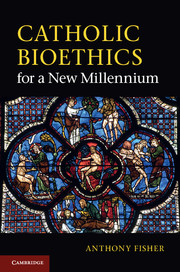Introduction
Published online by Cambridge University Press: 05 June 2012
Summary
‘Speaking the truth in love’ – so St Paul described the lived words of those who attain ‘the unity of the faith and knowledge of the Son of God’, those who grow up to be as fully human and close to divine as it is possible for human persons to be. Others, he warns, behave immaturely, ‘like children tossed to and fro’, carried about by the latest ideas, the spin of popular opinion-makers. That we might be assisted to take the first course, God graces ‘some to be apostles, prophets or evangelists, some to be pastors or teachers’, together building up the Church (Eph. 4:10–16).
I write as a Catholic moral theologian and bishop – as one of those Paul says are charged to build up God’s people to maturity and unity. It is a serious responsibility. Without reliable teachers, Paul continues, people may be dim-witted, hard-hearted, alienated from God, callous, licentious and greedy. Charity requires that ‘everyone speak the truth with his neighbour’, that they might be converted from their old lusts and habits, and become the very image and likeness of God (Eph. 4:17–25).
- Type
- Chapter
- Information
- Catholic Bioethics for a New Millennium , pp. 1 - 10Publisher: Cambridge University PressPrint publication year: 2011



